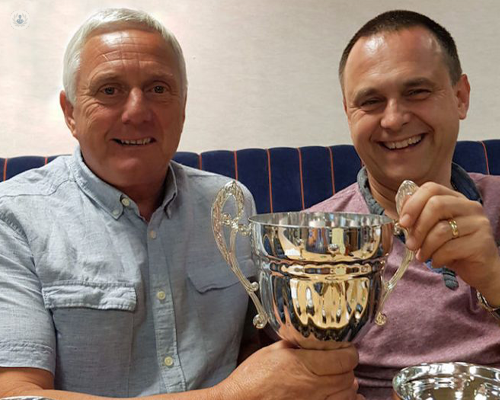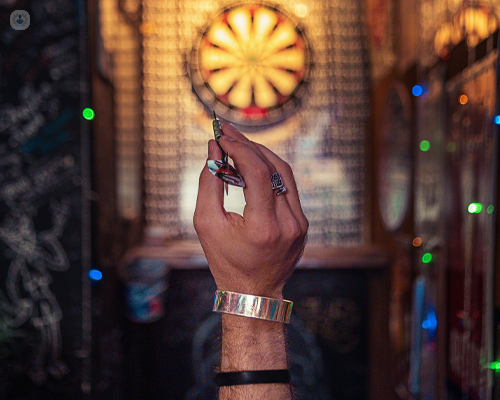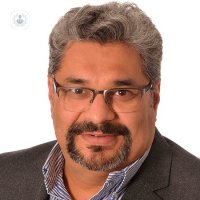180-degree turnaround for darts player after sciatica surgery
Written by:Being pain-free is just the start of the journey for patients that undergo spinal surgery for sciatica. Unlocking the possibilities that come along with it, is the exciting part - and many patients make the most of it in different ways once they have recovered.
David Cheal, a league darts player and IT specialist from Barry, South Wales, is one of those people. He became an international tournament winner in Paris, just six months after a microscopic procedure by leading consultant spinal neurosurgeon Mr Iqroop Chopra.
Treated at both Nuffield Health Cardiff Bay and The Vale Hospital, where Mr Chopra operates two of his private clinics, Mr Cheal was experiencing symptoms that left him in a lot of pain. Standing still for a couple of minutes would trigger his sciatica in his left leg, causing the muscles to tighten and feel numbness in the leg and toes . Once this happened, it meant everyday things like boiling a kettle, waiting for the iron to heat up and his passion, playing darts, were painful struggles rather than easy or enjoyable.

Relieving spinal pressure via surgery
Mr Cheal had several consultations, X-rays and MRIs as well as nerve-blocking injections and physio after being referred to Mr Chopra. Eventually, in mid-December 2017, he had a laminectomy, which is the surgical procedure that involves removal of part or all of the vertebral bone with the aim to ease pressure on the spinal cord or nerve roots. Mr Cheal also had herniated disc material removed from the lower back, called a discectomy, which also relieves tension on the spine.
Reflecting on his recovery, he said: "My back was very painful to touch for about 10 days. Six weeks later, I was back at work, with my mobility improving from mid-January."
Successful results
Mr Cheal gave a sparkling review of the service he received by the whole treatment team, especially Mr Chopra: "He and every member of staff that I met at the Nuffield Health hospitals were very good to me.
"My consultant is a very friendly, kind and knowledgeable man who did his upmost to keep me informed from my very first visit to my post-op appointment in early January 2018."
When it came to the operation's success, he said: "I would thoroughly recommend this procedure. I returned to darts in late February and was thrilled with the win, just three months later!"

Recognising when to get sciatica treatment
Mr Chopra observed how the deterioration of Mr Cheal's sciatic condition, which was initially managed with physiotherapy, pain killers and non-invasive injections, became so detrimental to his quality of life that led to the final - yet successful - option of surgery.
"The success rate of such non-surgical intervention is high and helps avoid spinal operations. However, where leg pain symptoms are resistant to such treatment or there is recurrence of symptoms, minimally-invasive surgical treatment offers good results."
He added that anyone experiencing severe sciatica symptoms and considering surgery should seek assistance as soon as possible.
"In Mr Cheal's case, microscopic decompression of the nerve helped his quick recovery. Early identification of the change in symptoms from mechanical back pain to radiating leg pain is vital. Also, where this change occurs in neck and arm pain, needs to be acted upon to avoid loss of leg function."
If you're considering going ahead with spinal surgery for sciatica, Mr Chopra can provide expert service. Visit his Top Doctors profile to make an appointment with him at your convenience.


